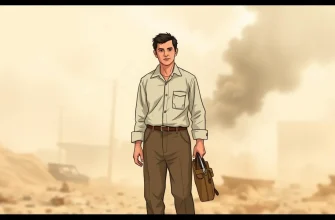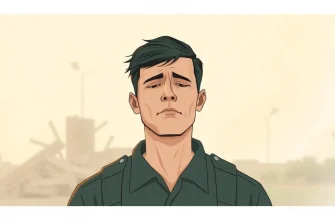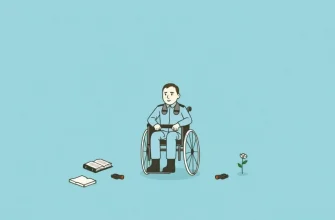War films often focus on the battles and the bravery of soldiers, but what happens after the war? This collection delves into the often overlooked aspect of war - the recovery and rehabilitation of those who have served. These films provide a poignant look at the physical and psychological healing process, showcasing the resilience of the human spirit in the face of adversity. They are not just stories of war but tales of hope, healing, and the journey back to normalcy.

The Best Years of Our Lives (1946)
Description: This classic film follows three World War II veterans as they return home and navigate life in a rehabilitation center, dealing with physical and emotional scars. It's a timeless exploration of post-war recovery.
Fact: The film won seven Academy Awards, including Best Picture, and was praised for its realistic portrayal of veterans' issues.
 Watch Now
Watch Now 
The Deer Hunter (1978)
Description: While not exclusively about a rehabilitation center, this film includes scenes where characters deal with the aftermath of war, including one character's recovery from severe injuries.
Fact: The film won five Academy Awards, including Best Picture, and is known for its controversial depiction of Russian Roulette.
 Watch Now
Watch Now 
Born on the Fourth of July (1989)
Description: Based on the true story of Ron Kovic, this film depicts his journey from a patriotic soldier to a disillusioned veteran who finds healing in a rehabilitation center after being paralyzed in Vietnam.
Fact: Tom Cruise received an Academy Award nomination for Best Actor for his role as Ron Kovic.
 Watch Now
Watch Now 
Flags of Our Fathers (2006)
Description: This film explores the lives of the men who raised the flag on Iwo Jima, including their post-war lives and the psychological rehabilitation they undergo.
Fact: Directed by Clint Eastwood, the film was shot back-to-back with its companion piece, "Letters from Iwo Jima."
 Watch Now
Watch Now 
The Hurt Locker (2008)
Description: Although primarily about bomb disposal in Iraq, the film includes moments where characters reflect on their experiences and the need for psychological rehabilitation post-war.
Fact: Kathryn Bigelow became the first woman to win the Best Director Oscar for this film.
 Watch Now
Watch Now 
The Railway Man (2013)
Description: Based on the true story of Eric Lomax, a former British Army officer who was tortured during WWII, the film shows his journey towards healing through a rehabilitation center.
Fact: Colin Firth and Nicole Kidman star in this poignant tale of forgiveness and recovery.
 Watch Now
Watch Now 
The War Within (2005)
Description: This film follows an Afghan immigrant who joins the U.S. military and later deals with the psychological aftermath in a rehabilitation setting.
Fact: The film was praised for its nuanced portrayal of the immigrant experience and the complexities of war.
 Watch Now
Watch Now 
The Men (1950)
Description: Marlon Brando stars as a paralyzed WWII veteran who struggles with his new life in a rehabilitation center, showcasing the emotional and physical challenges of recovery.
Fact: This was Brando's first film role, and he was praised for his intense and realistic portrayal.
 30 Days Free
30 Days Free 
Coming Home (1978)
Description: Set during the Vietnam War, this film focuses on a paraplegic veteran who finds solace and purpose in a rehabilitation center, highlighting the challenges of reintegration into civilian life.
Fact: Jane Fonda and Jon Voight both won Oscars for their performances in this film, which was noted for its anti-war stance.
 30 Days Free
30 Days Free 
The Messenger (2009)
Description: While not directly about a rehabilitation center, the film deals with soldiers returning from Iraq and their struggles with PTSD, often requiring rehabilitation services.
Fact: Woody Harrelson received an Academy Award nomination for Best Supporting Actor for his role in this film.
 30 Days Free
30 Days Free 








